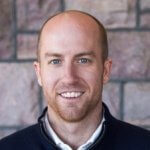More to Come
SINCE ENTERING the workforce in late 2010, I���ve been giving advice to others on how to put their money to good use. There are few things I enjoy more than having a conversation with a couple about such a complex subject. Along the way, I���ve pushed myself to learn more about specific financial planning strategies, as well as about human behavior and psychology.
These readings have not only taught me how I can better help my clients, but also how I can better manage my own finances. Just because I can put together a detailed financial plan doesn���t mean I���m not subject to the same behavioral mistakes.
Indeed, I���ve learned a lot about money and human tendencies over the past decade, both from my clients and from my own journey. Here are five key takeaways from the start of my career:
Life is going to change quickly, regardless of how good your plan is. An article by FiveThirtyEight.com says Americans will move an average 11.4 times in their lifetime. I���m 31 and I’ve already lived in 11 different homes or apartments. That number is soon to increase to 12. This has taught me to get rid of old belongings, so I don���t have to move them. The frequent moves have also been a reminder that mortgage or rent take up a large portion of my budget���and I need to remain flexible in how I spend my other money.
A large cash reserve has wonderful benefits. Yes, there���s an opportunity cost to not investing your excess cash. But there is also a major advantage to having cash on hand. Thanks to my savings, I was able to start my own business. That wouldn���t have been possible if I didn���t have the liquidity to pay my bills, while I went without a salary.
Starting to invest early is easier said than done. After reading personal finance books in college, I knew I needed to start investing as soon as possible. Compound interest is a powerful thing and every year counts. I began by automatically adding $50 a month to my Roth IRA using my earnings from summer jobs. When I entered the workforce fulltime, I steadily increased my contributions. I can already see my efforts are paying off. There were plenty of ways I could���ve spent the money, instead of investing, but I���m glad I took the path I did.
My natural frugality has set a foundation for a healthy financial future. But spending money makes me happy, too. I���ve come to realize that my hobbies are expensive: golf and travel. To balance out the cost, I cut back on areas that I don���t care so much about: new cars and a new wardrobe. We never know what the future will bring, which is why I spend money on things I love today, while keeping an eye on securing the future.
Automating my investments has been a boon to my net worth. I don���t believe the markets can be beaten over the long run. What I do believe in: getting out of my own way. By setting up a diversified portfolio and automating my contributions, I can invest with less interference from my potentially damaging human behavior.
I never imagined I���d be where I am today. More change is on the horizon: In May, I���ll be getting married. I can���t begin to predict what the future may hold���but I���m making sure I���m prepared.
 Ross Menke is a certified financial planner and the founder of
Lyndale Financial
, a fee-only financial planning firm in Nashville, Tennessee. He strives to provide clear and concise advice, so his clients can achieve their life goals. Ross���s previous blogs include Pass It On,��A��Great Gift��and��
Bad Timing
. Follow Ross on Twitter
@RossVMenke
.
Ross Menke is a certified financial planner and the founder of
Lyndale Financial
, a fee-only financial planning firm in Nashville, Tennessee. He strives to provide clear and concise advice, so his clients can achieve their life goals. Ross���s previous blogs include Pass It On,��A��Great Gift��and��
Bad Timing
. Follow Ross on Twitter
@RossVMenke
.
The post More to Come appeared first on HumbleDollar.



